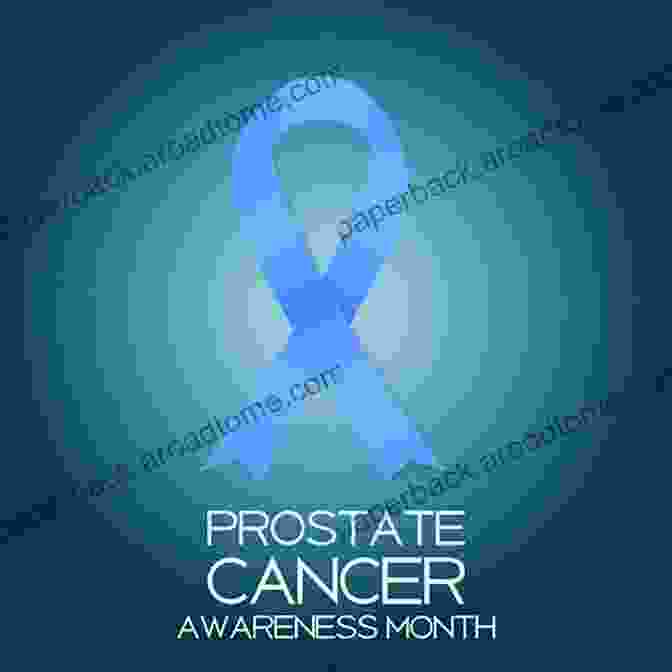Prostate Cancer: Understand the Disease and Its Treatment

5 out of 5
| Language | : | English |
| File size | : | 7907 KB |
| Text-to-Speech | : | Enabled |
| Screen Reader | : | Supported |
| Enhanced typesetting | : | Enabled |
| Word Wise | : | Enabled |
| Print length | : | 106 pages |
| Lending | : | Enabled |
Prostate cancer is the most common cancer among men, affecting countless individuals worldwide. This guide aims to provide a comprehensive overview of prostate cancer, covering its risk factors, symptoms, diagnosis, treatment approaches, and support resources. By equipping individuals with in-depth knowledge, we empower them to make informed decisions about their healthcare and navigate this journey confidently.
Risk Factors
Several factors can increase the risk of developing prostate cancer, including:
- Age: The risk increases significantly with age, particularly after 50.
- Family history: Men with a family history of prostate cancer are more likely to develop the disease.
- Race: African American men have a higher risk than other racial groups.
- Obesity: Men who are overweight or obese have an increased risk.
- Diet: Diets high in saturated fat and red meat may increase the risk.
Symptoms
In its early stages, prostate cancer often presents with no noticeable symptoms. However, as the cancer progresses, symptoms may include:
- Difficulty urinating (hesitation, weak stream, urgency)
- Frequent urination, especially at night
- Pain or burning during urination
- Blood in the urine or semen
- Erectile dysfunction
- Pain in the lower back, pelvis, or thighs
Diagnosis
Prostate cancer is typically diagnosed through a combination of tests:
- Prostate-specific antigen (PSA) test: A blood test that measures PSA levels. Elevated PSA levels may indicate prostate cancer.
- Digital rectal exam (DRE): A physical examination where the doctor feels the prostate through the rectum.
- Prostate biopsy: A procedure where tissue samples are taken from the prostate and examined under a microscope.
Treatment Options
The treatment approach for prostate cancer depends on various factors, including the stage of the cancer and the patient's overall health. Common treatment options include:
- Surgery: Surgery involves removing the prostate gland and surrounding tissues.
- Radiation therapy: High-energy radiation is used to kill cancer cells.
- Brachytherapy: Radioactive seeds are implanted directly into the prostate.
- Hormone therapy: Hormones are used to suppress testosterone production, which can slow cancer growth.
- Immunotherapy: Drugs are used to boost the body's immune system to fight cancer.
- Targeted therapy: Drugs are used to target specific molecules involved in cancer growth.
Patient Resources
Navigating a prostate cancer diagnosis can be overwhelming. Numerous resources are available to provide support and guidance:
- Support groups: Connecting with other individuals facing similar experiences can offer emotional support and practical advice.
- Patient organizations: Organizations such as the Prostate Cancer Foundation provide information, resources, and advocacy.
- Healthcare professionals: Doctors, nurses, and other healthcare professionals can provide medical guidance and emotional support.
- Online resources: Websites and online communities offer a wealth of information, support, and resources.
Prostate cancer is a serious but manageable disease. By understanding the risk factors, symptoms, diagnosis, and treatment options, individuals can empower themselves to take an active role in their healthcare. Knowledge is power, and it is through education that we can navigate this journey with confidence and hope. Remember, you are not alone. Numerous resources and support systems are available to assist you every step of the way.

Disclaimer: The information provided in this article is intended for general knowledge purposes only and does not constitute medical advice. Always consult with your healthcare provider for personalized advice and treatment recommendations.
5 out of 5
| Language | : | English |
| File size | : | 7907 KB |
| Text-to-Speech | : | Enabled |
| Screen Reader | : | Supported |
| Enhanced typesetting | : | Enabled |
| Word Wise | : | Enabled |
| Print length | : | 106 pages |
| Lending | : | Enabled |
Do you want to contribute by writing guest posts on this blog?
Please contact us and send us a resume of previous articles that you have written.
Light bulbAdvertise smarter! Our strategic ad space ensures maximum exposure. Reserve your spot today!

 Harvey HughesEmpowering Daughters: A Scholarly Approach Concerning Daughters Dealing With...
Harvey HughesEmpowering Daughters: A Scholarly Approach Concerning Daughters Dealing With... Jesse BellFollow ·15.7k
Jesse BellFollow ·15.7k Zachary CoxFollow ·2k
Zachary CoxFollow ·2k Dakota PowellFollow ·2.7k
Dakota PowellFollow ·2.7k Troy SimmonsFollow ·11.5k
Troy SimmonsFollow ·11.5k Gene SimmonsFollow ·11.8k
Gene SimmonsFollow ·11.8k Brett SimmonsFollow ·5.4k
Brett SimmonsFollow ·5.4k Ross NelsonFollow ·4.7k
Ross NelsonFollow ·4.7k Julio CortázarFollow ·9.3k
Julio CortázarFollow ·9.3k

 Isaiah Powell
Isaiah PowellWisconsin Clinic Pilots Mobile Crisis Response System For...
MADISON, Wis. - A new mobile crisis...

 Daniel Knight
Daniel KnightUnleash Your Creativity: A Masterclass in Fabulous Nail...
Embellish Your Fingertips with Captivating...

 Clark Campbell
Clark CampbellDetect When You Are Being Emotionally Manipulated By...
Emotional manipulation is a subtle but...

 Eli Brooks
Eli BrooksNeurological Disorders Papers: Dissociative Identity...
What is Dissociative...

 Ricky Bell
Ricky BellAn Introduction to Islam for Jews: Unveiling the Tapestry...
A Bridge of Understanding: Exploring Islam for...

 Octavio Paz
Octavio PazAchieving Longevity: The Complete Step-by-Step Guide to...
**** In the ever-evolving landscape of health...
5 out of 5
| Language | : | English |
| File size | : | 7907 KB |
| Text-to-Speech | : | Enabled |
| Screen Reader | : | Supported |
| Enhanced typesetting | : | Enabled |
| Word Wise | : | Enabled |
| Print length | : | 106 pages |
| Lending | : | Enabled |
















































